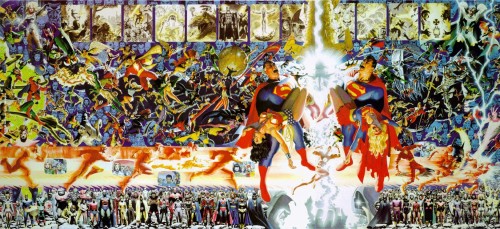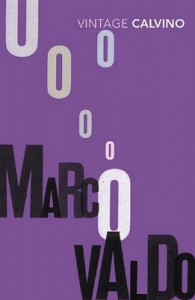Another quickie: Padgett Powell wrote an about Warren Sapp for ESPN Magazine, but they didn’t publish it. Deadspin did, though. The piece in nice—strong Powell sentences and all. The post-script for the story, though, where Powell talks about taking a couple of hits from a proffered joint to prove he’s not a narc, is pretty funny.
Editors: When you’re nominating writing from your magazine for an award or prize, do you always nominate the work you think is the absolute best you’ve published, or do you nominate work that is maybe just among the best but that you feel might match the aesthetics and prior history of the prize or award you’re nominating for? In other words, as an editor, do you target your nominations for the Pushcart Prize and other awards/anthologies in the same way you hope that writers target their submissions to you?
Leaving Imaginary Money on a Non-Existent Table
-a salient point from Merlin Mann.
Worlds Collide!!!! aka “Justin Taylor is Cool”

You know what I love? Waking up to a Google alert that has a story in it called “Justin Taylor is Cool.” Who wouldn’t love that? So imagine my surprise when I clicked through and wound up at something called the Reformation21 blog. It’s a post about me and my doppelganger, Justin Taylor of Crossway Books, a preacher from Wheaton, Ill about whom I’ve blogged many times, and whose awareness of my existence I’ve frequently been given to speculate about. Well it seems all but certain that he knows about me now, and furthermore, this post by Stephen Nichols seems to make clear once and for all that he is not my doppelganger, but rather that I am his. Since it’s a short post it is reproduced in full, but you might as well see Ref21 for yourself.
So here I am thumbing through my latest copy of Paste catching up on the latest Indie and post funk metal ska offerings and there it is:
“Justin Taylor’s first short story collection” . . . “artfully captur[ing] the view of the 2000s.” Everything Here Is the Best Thing Ever–great title, despite being riddled with theological problems.
Apparently our Justin, “Editorial Director at Crossway and follower of Christ” by day, is a Brooklyn-living professor of writing at Rutgers on the side.
I knew someday being Justin’s friend would raise my HQ (hip quotient for those not in the know).
Stephen, if you’re reading this- thanks for the shout! And yes, EHITBTE presents something of a theological problem–hardly beside the point, btw. You might think about it as an intentional release of the self-destructive powers of the exponential and the recursive onto Leibniz’s notion that “all is for the best in the best of all possible wolds.” Not that that solves anything- but solving problems is your homeboy’s line of work. Mine is causing them. Seems like we’ll work together splendidly. And Justin, if you’re out there, pleased to meet your acquaintance! I’m really sorry I keep putting out books that have titles that sound like they could be your books- The Apocalypse Reader, and the (forthcoming novel, provisionally entitled) The Gospel of Anarchy. We have things in common! I love GK Chesterton! And Kierkegaard! And I just got my copy of The Axioms of Religion by Hobbes and Mullins in the mail today and am very excited to read it. Let me know if you ever want to chat about the history of American Baptist thought and sectarianism.
It is Tuesday and We Love Ourselves and, Hey, Why Shouldn’t We?
 I was just mucking around in the GIANT stats and noticed something wild- on 2/21 lightning hit our transmitter and HTMLGiant had a huge 18,501 unique visitors. That means that yesterday was in striking-distance of the site’s all-time high, which was December 4, 2009 when every single person in the world (or, rather, 20,249 people in the world) decided they wanted in on the DFW Grammar Challenge (part 2, part 3). So what was it that brought the teeming hordes back over our way? Was it Jeremy Schmall’s poems? Was it Amy again? Was it my post of Harold Bloom reciting a Stevens poem? Actually, it was Jimmy Chen’s “illustrated account of Tom Wolfe’s wardrobe on the Charlie Rose show.” The post went up on the 16th, but the 21st was the day that Andrew Sullivan linked it from his blog, describing it to his readers as “brilliant.” So kudos & salutes to Jimmy, and Andrew, if you’re reading this–thanks! I’m a regular reader of yours already, and it’s very gratifying to know you’ve got an eye on us. Cheers, all!
I was just mucking around in the GIANT stats and noticed something wild- on 2/21 lightning hit our transmitter and HTMLGiant had a huge 18,501 unique visitors. That means that yesterday was in striking-distance of the site’s all-time high, which was December 4, 2009 when every single person in the world (or, rather, 20,249 people in the world) decided they wanted in on the DFW Grammar Challenge (part 2, part 3). So what was it that brought the teeming hordes back over our way? Was it Jeremy Schmall’s poems? Was it Amy again? Was it my post of Harold Bloom reciting a Stevens poem? Actually, it was Jimmy Chen’s “illustrated account of Tom Wolfe’s wardrobe on the Charlie Rose show.” The post went up on the 16th, but the 21st was the day that Andrew Sullivan linked it from his blog, describing it to his readers as “brilliant.” So kudos & salutes to Jimmy, and Andrew, if you’re reading this–thanks! I’m a regular reader of yours already, and it’s very gratifying to know you’ve got an eye on us. Cheers, all!
February 23rd, 2010 / 12:04 pm
The Next Step and The Whole Point
When reading the work of prodigiously–okay wildly–talented contemporaries–people like Natalie Lyalin, Heather Christle, Sabrina Orah Mark, Chelsey Minnis, Claire Becker–I tend to think first:
I love this. This is essential and beautiful.
And then at some point, my thoughts turn to my own work, and a voice says,
I can’t do anything like this.
It is all too easy to stop at that point, and stew, and–to drown out the voice–spend the next part of the day doing something that isn’t writing.
But the voice isn’t done talking.
That is going to have to be okay. There are other things I can do.
Listen to that, and return to your writing. This is the next step.
It’s not as if Chelsey Minnis can do what Sabrina Orah Mark does. It’s not as if Sabrina Orah Mark can do what Chelsey Minnis does. This is the whole point.
CALLING ALL HEARTS: Buy this book now.

Looking, now?
Okay. So Justin Taylor’s debut book with HaperPerennial–Everything Here Is the Best Thing Ever–was recently reviewed in the NYT. It will not be that hard, with that bump, to make this book a NYT Best Seller, which would obviously be a monumental event for Justin and these stories. I implore you: if you haven’t already, but this book from Amazon.com or your local bookstore THIS WEEK. Even if you have a copy already. I bought two more. This could be huge for Justin, this community, and good literature.
People think if a book is at Amazon it is somehow more “legitimate”
 Below is an excerpt from a paper I wrote about some of the business aspects of publishing. Let me know if you have any questions.
Below is an excerpt from a paper I wrote about some of the business aspects of publishing. Let me know if you have any questions.
As the buzz on Light Boxes picked up last spring, I found it increasingly difficult to keep up with fulfillment. Even Amazon, who had previously been sending Purchase Orders for 2-3 books at a time, started to send orders in the dozens every week, and for shipment to multiple distribution centers. This policy of theirs is extremely frustrating, because for one thing, they don’t pay for shipping even while they demand a 55% discount. For a publisher participating in their “Advantage” program, this structure is backbreaking. Having to mail books to four places, in special packaging (since they’ll destroy any book they deem unsellable), eliminates the already-tiny margin and drives up the cost to the user. For instance, a paperback book like Light Boxes, at 167 pages, stretches product value with a $14.95 price tag. At that amount, though, PG is paid $6.73 per copy. Okay, that isn’t too bad. Subtract from that the cost of production (including printing, design, art rights, cataloging numbers, promotional items and copies and so on), the amount PG earns is closer to $2.25. Now consider Amazon’s tendency to order books to four different locations, which means that shipping has to be paid four times, and the result is that it actually costs about $.30 to sell a book with them. Separately, Amazon charges the customer (or enduser) $3.99 for shipping, which means that the cheapest Light Boxes will sell for through them is $18.94. Having paid this kind of money can cause readers to have certain expectations, and I am always afraid that the shortness of the book will disappoint them. READ MORE >
Salute to Salu
 Caustic Cover Critic interviews Michael Salu. Salu just did the Vintage Classics’ Italo Calvino and Raymond Carver reissues. His blog here.
Caustic Cover Critic interviews Michael Salu. Salu just did the Vintage Classics’ Italo Calvino and Raymond Carver reissues. His blog here.

